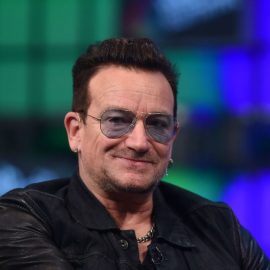

This article is an excerpt from the Shortform summary of "The Smartest Guys in the Room" by Bethany McLean and Peter Elkind. Shortform has the world's best summaries of books you should be reading.
Like this article? Sign up for a free trial here .
Who was the Enron CEO who was responsible for the company’s collapse?
Enron had two CEO’s, Ken Lay, the founder, and Jeff Skilling, the former COO who moved into the CEO position. Both Enron CEO’s contributed to the culture and bad business practices at Enron that eventually cause the company’s failure. Read below to learn more about each Enron CEO.
Enron CEO: Two Paths of Deceit
There were two Enron CEOs of note in The Smartest Guys in the Room. read about Ken Lay and Jeff Skilling.
Ken Lay
Ken Lay was the found and first Enron CEO. He believed in efficient markets. The 1970s energy crisis caused natural gas to become deregulated. Lay saw an opportunity to profit from this deregulation.
Lay had served in various roles in gas companies before heading Houston Natural Gas (HNG) in 1984. His vision was to control a large fraction of pipeline which would allow better negotiating leverage.
Larger Omaha company InterNorth, in danger of being taken over by corporate raiders, wanted to defensively increase its size and debt load. It acquired HNG in 1985, with terms very favorable for HNG. Ultimately, Lay gained control of the board and became CEO of the company, renaming it Enron.
Things didn’t immediately work out quite as well as Lay hoped. A glut of gas on the market depressed prices and put Enron’s long-term gas contracts underwater. Management of the combined entity was tough, riddled with politics. As a public company, Enron was desperate for real earnings. It turns out for all his enthusiasm, Lay didn’t personally have strategic insights into how to create a new business model in this new deregulated world. The first Enron CEO eventually left the company to Jeff Skilling.
The Rise of Jeff Skilling
With the power vacuum, Skilling (head of Enron’s trading operations) maneuvered into the COO role, basically by threatening to quit if he didn’t get it. This triggered a number of changes, eventually leading Skilling to be appointed Enron CEO.
1) The focus shifted to trading as the core of Enron’s business. Physical assets that actually dealt with supplying energy were sold off.
- EOG (Enron Oil and Gas) was spun off. It still survives today as a public company, EOG Resources.
2) Enron’s trading scope expanded outside natural gas. Their aim was to become “The World’s Leading Energy Company.” They expanded into electricity, and they engaged in plant deals from gas plants to water, steel, and paper. The promise was huge – if Enron could create an electricity-trading business and claim 20% of it, the payoff would be enormous.
- But they overextended, believing the markets were more similar to gas than they really were. For example, as an outsider to electricity, Enron was feared as the big player that incumbents shouldn’t partner with.
3) Enron International head Rebecca Mark was sidelined and knew she wouldn’t rise further in management. She decided to buy a British water utility, forming the company Azurix. (This would later end in failure, described in a later chapter.)
4) Skilling set up a Risk Assessment and Control (RAC) department, which publicly was believed to be watertight and having strong veto power over risky deals. Stock analysts believed Enron had tight risk management capabilities, which gave Enron the leeway to take on more risk than other companies.
- In reality, RAC was just a yesman, with a weak manager in place who didn’t fight against bad deals.
- RAC staff also faced strong pressure to close deals to hit quarterly numbers. Enron’s staff had a peer review system that was a key component of promotions and compensation. Deal originators within Enron threatened poor peer reviews for RAC peers who didn’t approve deals.
Personal Traits of Each Enron CEO
Much is written about the management styles of the senior executives at Enron, particularly each Enron CEO. They each had idiosyncracies that, when combined, led to a proliferation of problems.
Jeff Skilling, COO then CEO
- An intellectual purist, a designer of ditches, not a digger of ditches. Often slow to recognize when reality didn’t match theory. Left the execution details to his lieutenants.
- “I’m not particularly interested in the balance sheet. It seemed to be doing well. We always had money.”
- In the retail Enron Energy Services business, Skilling disparaged the operators of utilities as “buttcrack “ workers. “This stuff sells. Now we have to actually do something for the customers. That’s the easy part.”
- A gambler at heart, always assumed he could beat the odds. (He was wiped out in the stock market twice in his teens.)
- Convinced he was the smartest guy in the room – anyone who disagreed wasn’t smart enough to get it
- He bullied analysts who questioned how Enron made money. If he didn’t want to answer a question, he dumped a lot of data. If you still didn’t get it, he’d call you stupid.
- Darwinian in management. Encouraged confrontation between subordinates.
- When developing a business, price was no object – the business Enron could build with an asset would far outweigh a higher price in the beginning.
- Rarely pushed back on deals he believed were bad, promising to hold people accountable but rarely doing so.
- Obsessed with Enron’s stock price on a daily basis.
Ken Lay
- Loved his public persona as a business sage, leading an old industry into a new era
- Became engrossed by his charity foundation, networking with Washington elite, and being a local gatekeeper in Houston politics. Aimed to be treasury secretary.
- Known internally in Enron as a pushover when negotiating pay and bonuses.
- Was a weak manager, wanting others to like him and hiding behind the board for tough decisions (like not promoting Rich Kinder). Lied to keep people from getting mad at him
- Wall Street analysts viewed him as useless and out of touch with how the business worked – they preferred Kinder who delivered the numbers.
- Used Enron’s resources for his family (family use of company jets) and engaged in nepotism (used a relative’s travel agency to book Enron flights).
- Became a missionary for deregulation
- This had worked once before in natural gas.
- He inappropriately applied this mission to retail utilities, without proof that the states were actually moving in this direction. Enron bet big and lost.
Each Enron CEO contributed to the problem, eventually leading to the Enron collapse and bankruptcy. Some speculate that if COO Rich Kinder (COO before Jeff Skilling) had been appointed Enron CEO, the story of Enron could have been different.

———End of Preview———
Like what you just read? Read the rest of the world's best summary of Bethany McLean and Peter Elkind's "The Smartest Guys in the Room" at Shortform .
Here's what you'll find in our full The Smartest Guys in the Room summary :
- How Enron rose to become one of the world's most promising companies
- How Enron management's greed led it to start cutting corners
- The critical failures that crashed Enron's house of cards to the ground






